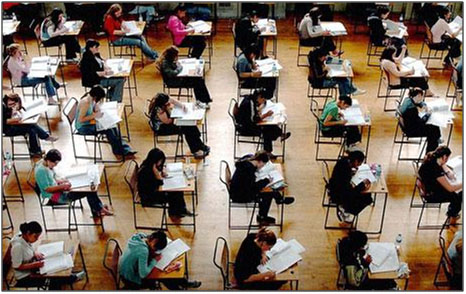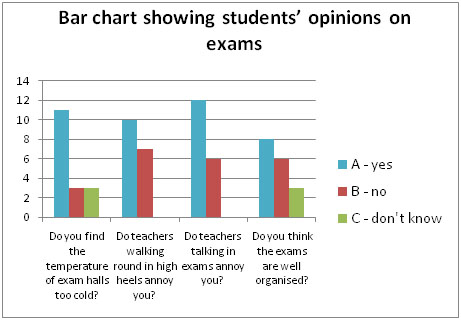Should Exam Conditions Be Changed?
 Every year, in every school across Britain, there are thousands of students sitting exams. These exams range from Junior Maths Challenges all the way up to A level. The question is, are the conditions in which these students work allowing them to reach their full potential?
Every year, in every school across Britain, there are thousands of students sitting exams. These exams range from Junior Maths Challenges all the way up to A level. The question is, are the conditions in which these students work allowing them to reach their full potential?
As Year 9 students of Collingwood College, we sat two Functional Skills English exams in the January of this year. This winter was one of the coldest and harshest that the UK has seen in many years. When the chance to do BBC report came up, we decided that we wanted to look at the subject in more depth.
We discovered that students at our school feel that the exam conditions are often too cold in winter and too hot in summer. In our survey, 65% of students were complaining about how cold the gym that they had to work in was and how they found it hard to work in these conditions. The EdExcel examination regulations state that the exam halls should have adequate heating and ventilation but no specific temperatures are given. In our case, there was little that could be done about the heating problem, and the site team were working very hard to get the boiler working properly.
60% of students also complained that invigilators were walking around in high heels and that they found that the noise made by their shoes on the wooden floors very distracting. Also, 71% of student complained that the invigilators were looking over their shoulders to look at their work and talking to other invigilators in the corner; they found this distracting. There are, however, no rules which prohibit invigilators from doing this.
We also interviewed some Sixth Formers, who had a lot of comments about their exam experiences. They said that there were “wobbly tables” and, slightly irrelevantly, “the pigeons on the roof were distracting”. Wobbly tables should not cause too much distraction, and as long as the tables are the correct size (which they were), it complies with regulations.
However, the majority of students thought that the exams were really well organised.
When we asked teachers currently working at our school what they thought about the current exam conditions, 80% said that invigilators should not be allowed to talk unless in an emergency.
The majority thought that invigilators should not be looking at student’s work however some pointed out that it may be necessary to occasionally glance at it to check that students are using the correct coloured ink and are writing within the margins.
Also 75% of teachers thought that invigilators should be banned from wearing high heels or other noisy shoes within exam halls so as not to distract students.
The vast majority of teachers think that exam conditions do not need to be changed however some said that it would be a good idea to separate exams of different lengths so as to minimise disruption for students sitting the longer exams when those sitting the shorter ones leave.

In conclusion, our exam conditions are not critical, and most people are reasonably satisfied. However a few adjustments (such as a ban on high heels) would be very much appreciated by all students.
To gather our data for this article, we conducted a survey of students at Collingwood about their views on exam conditions. The results from this survey are printed here.






